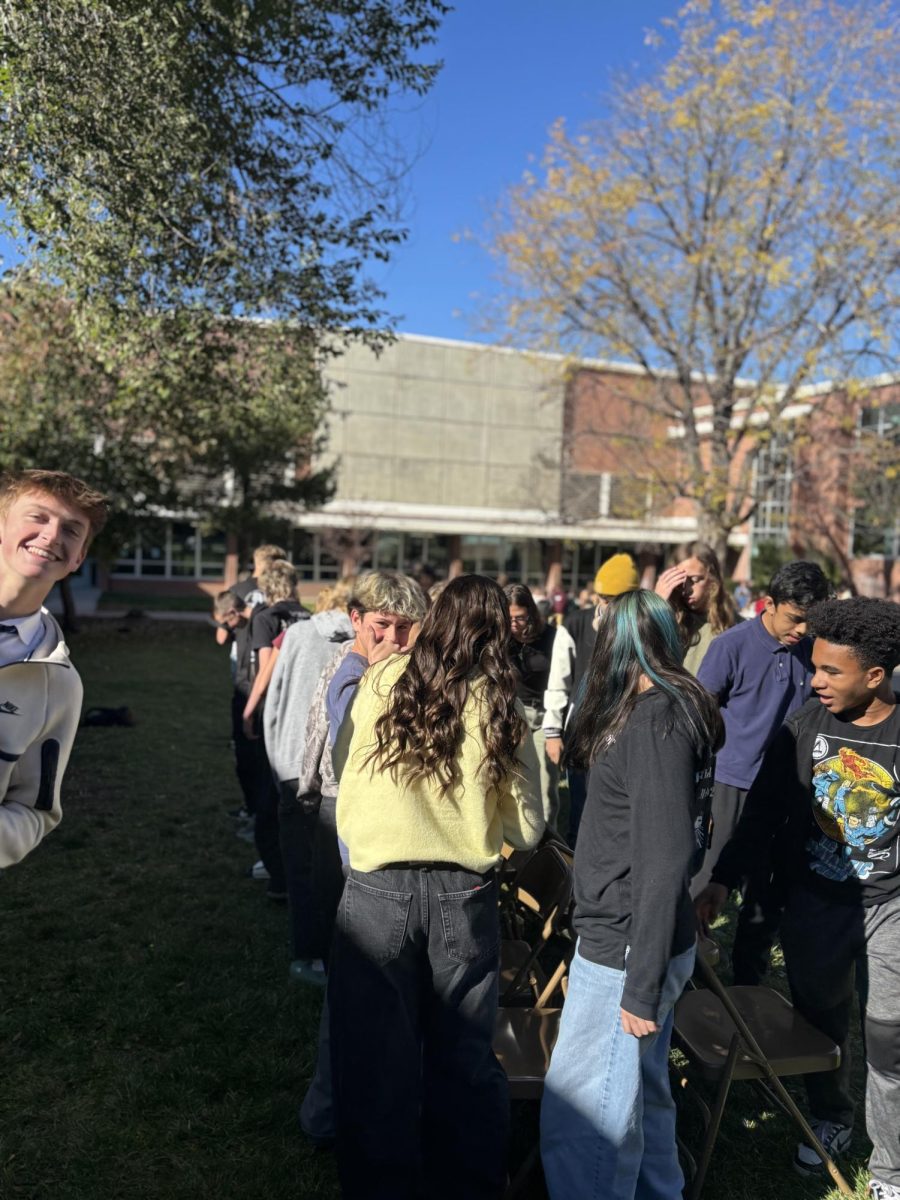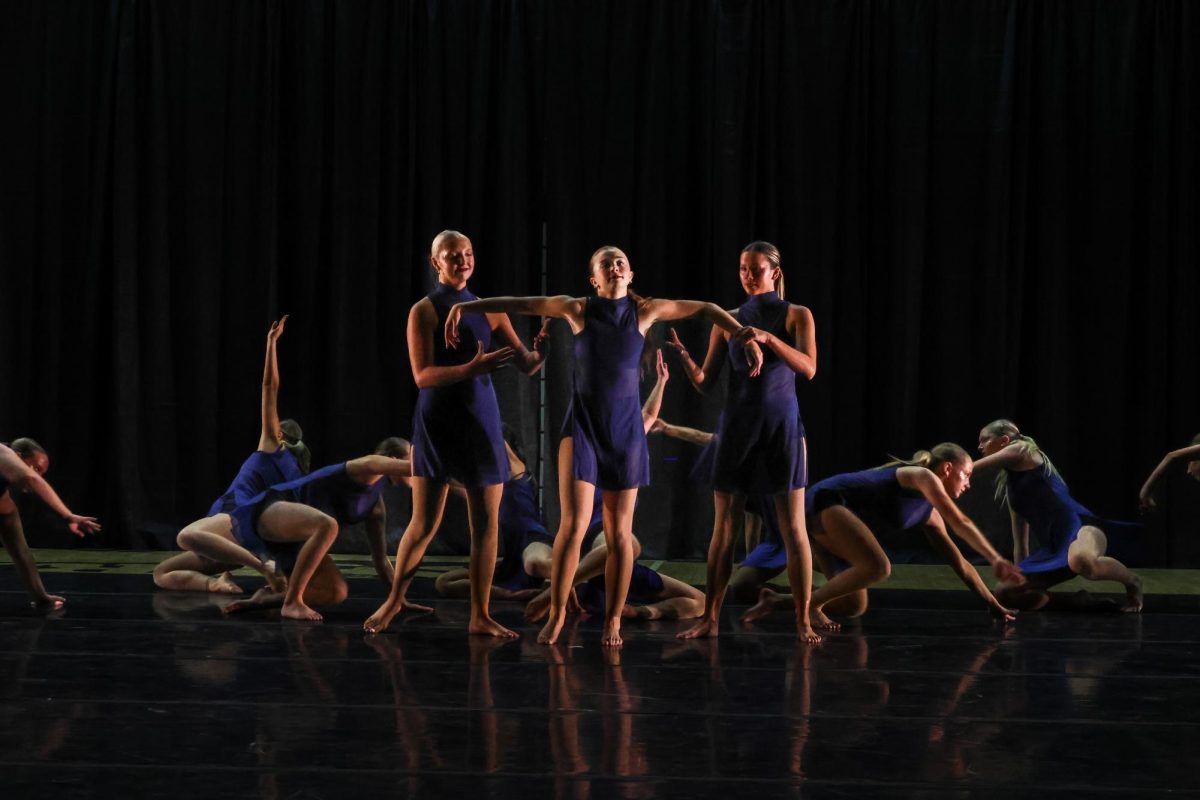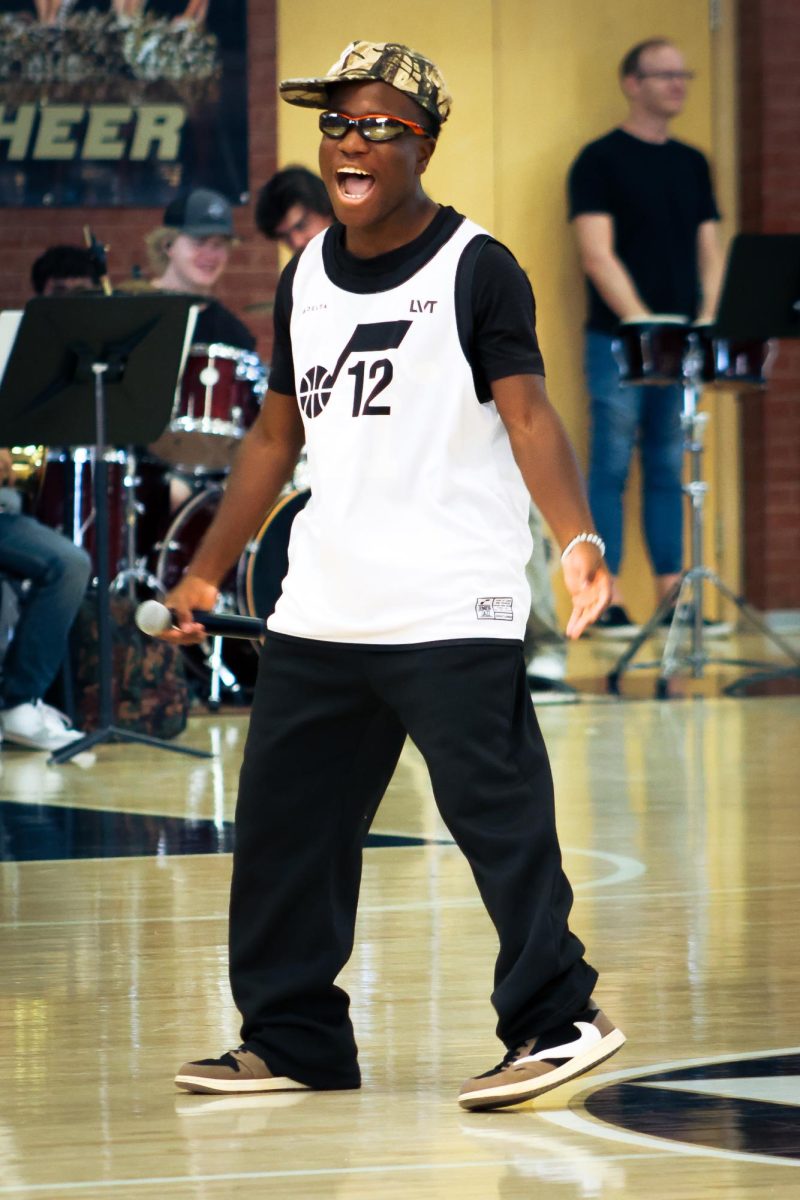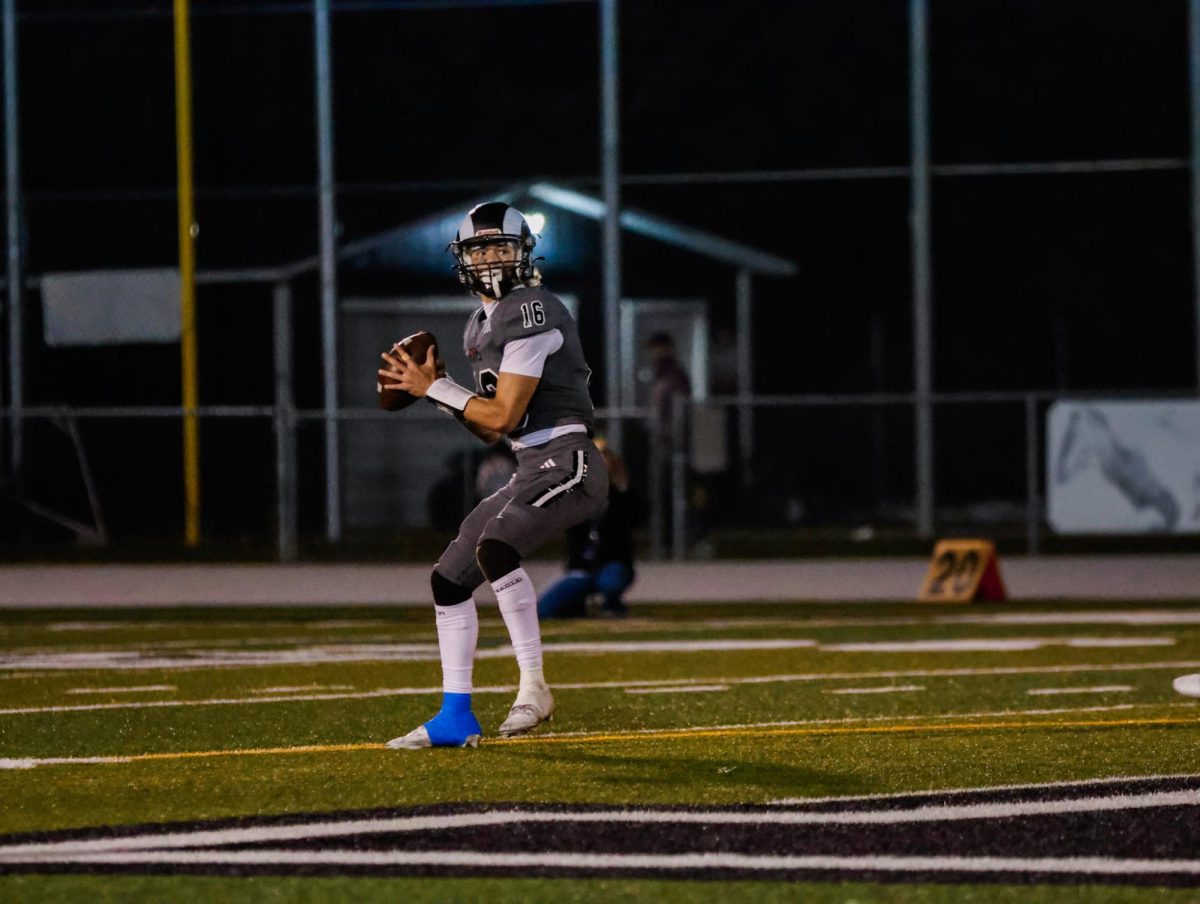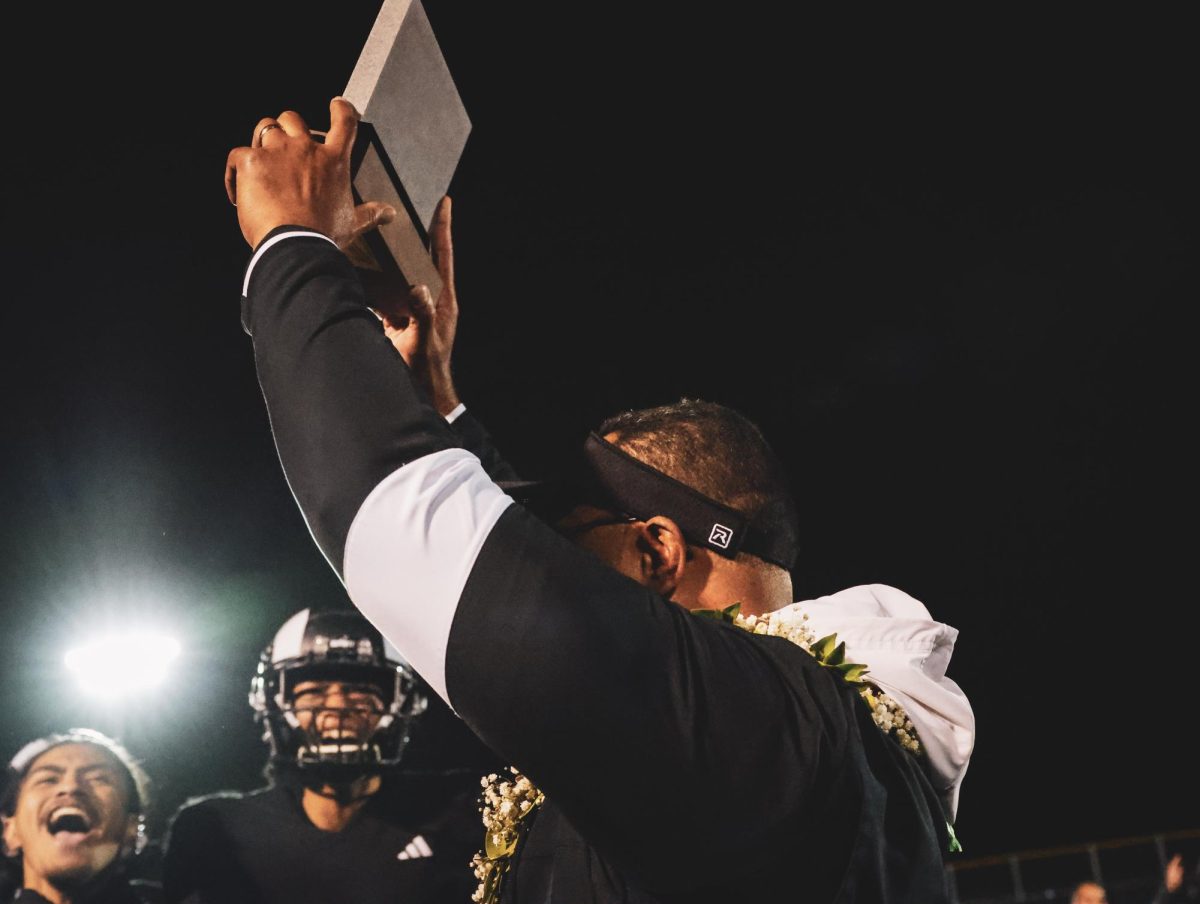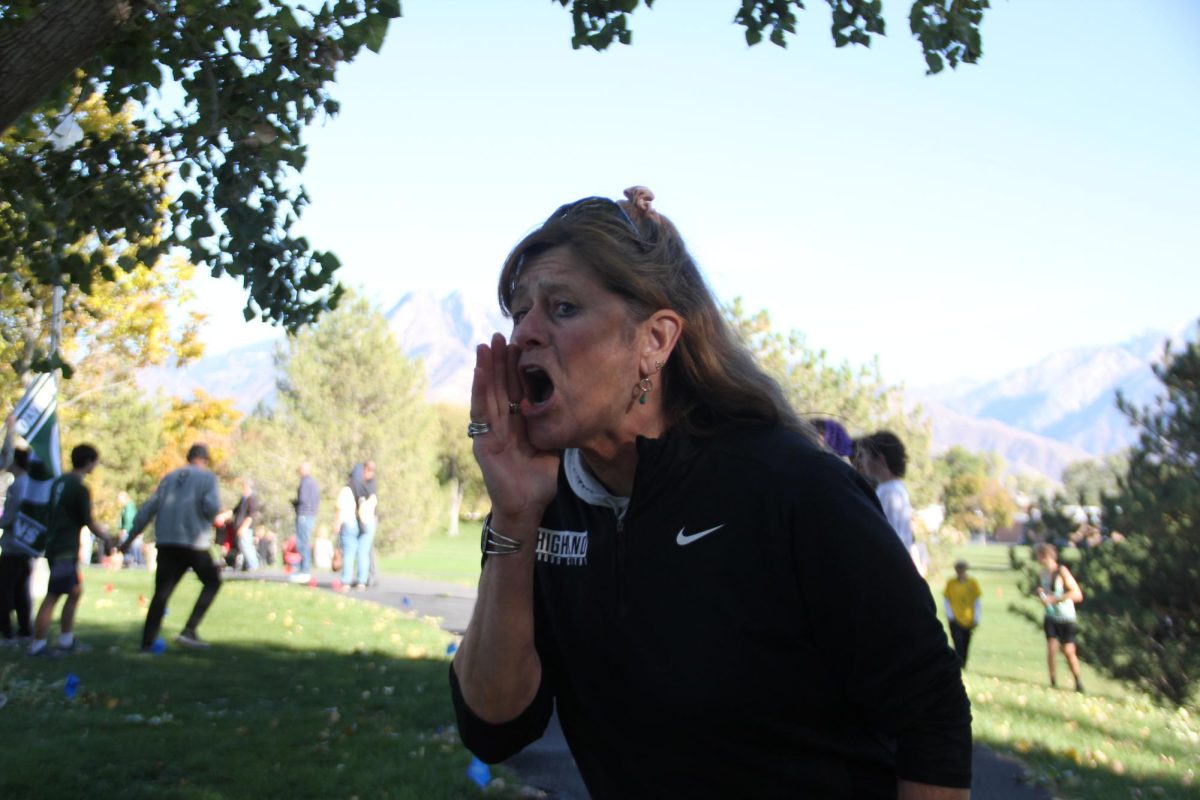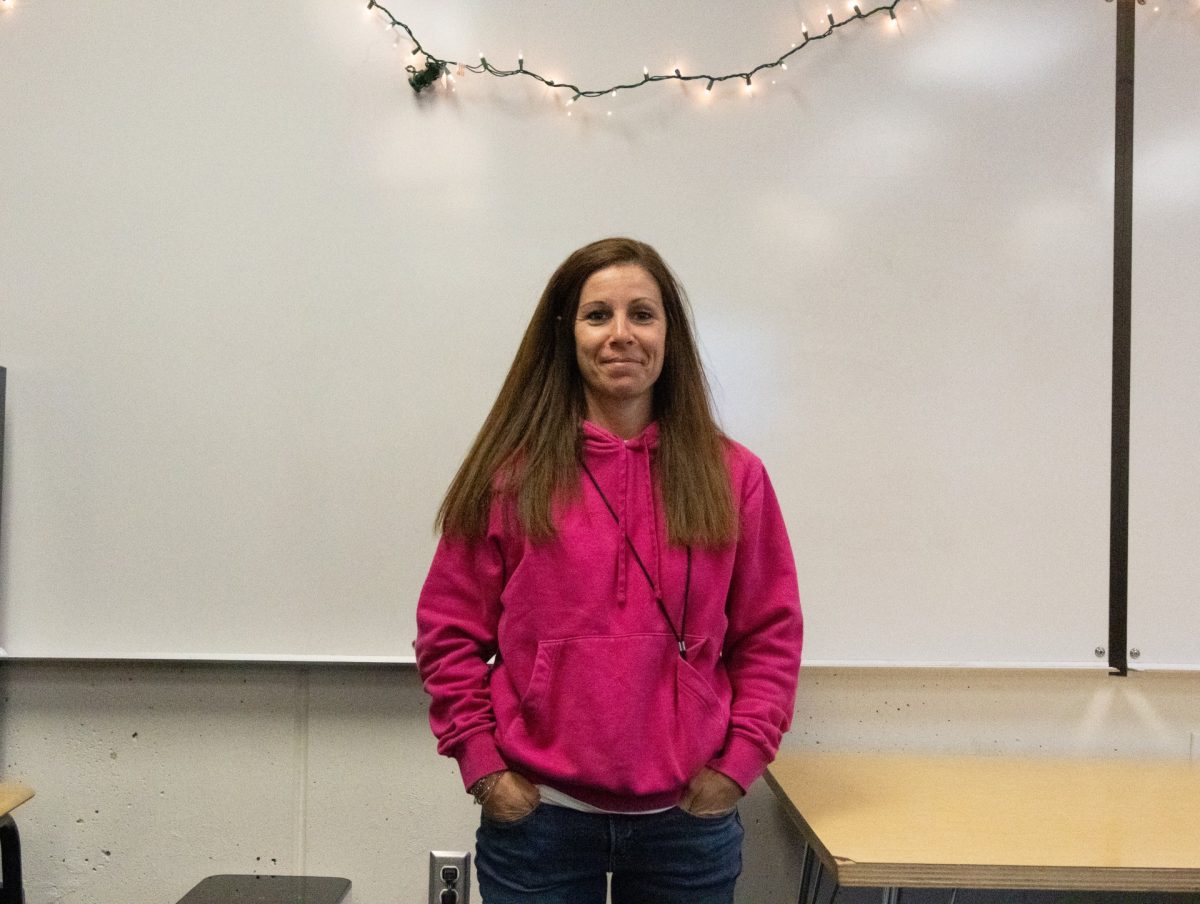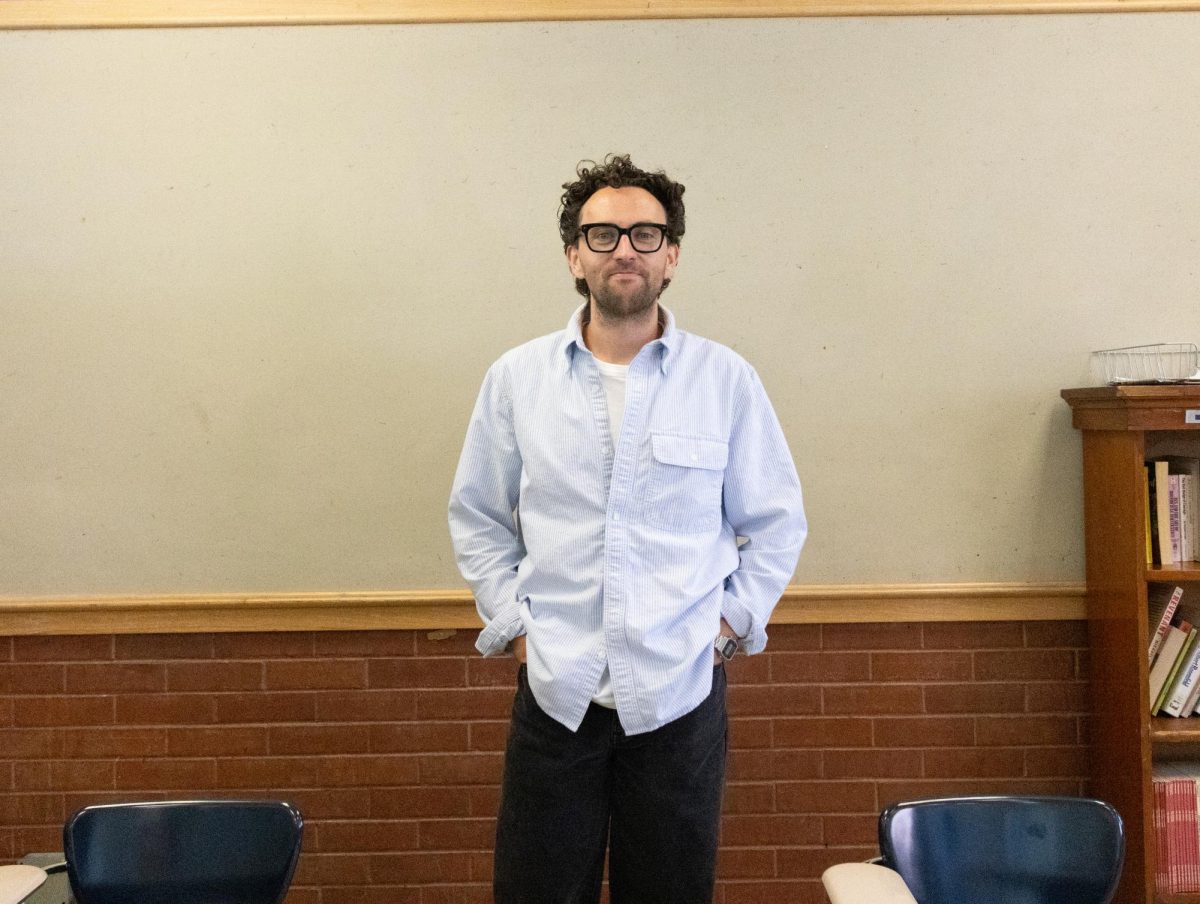There’s probably no one better to escape with to the Utah mountains during an apocalypse than Laurie Humbert.
Some people can ski, others can shoot a rifle, but Humbert can do both at the same time.
Before Laurie Humbert was a teacher or coach at Highland, she was an athlete herself who competed in the Biathlon during the winter Olympics of 1994 in Lillehammer, Norway.
Biathlon combines cross-country skiing and rifle shooting as competitors ski a cross-country course while carrying a rifle and ammunition, stopping at shooting rounds to fire at targets.
Humbert is a big believer of participating in multiple sports, which is shown through her years of training.
“I trained 14 years before, but in those 14 years I didn’t do just biathlon. I was a runner, I did triathlons, and was a bike racer. I was a semi-pro bike racer,” Humbert said.
While Humbert didn’t medal at the games, she finished in the top half of competitors for the women’s 15 km race, and the US team did exceptionally well during the women’s 4 x 7.5 km relay. Out of 69 participants, she finished 32nd, but in the team relay, they finished 8th.
“What was cool about that is we were ranked 16th, but we got 8th. We did really well,” Humbert said.
Many women at the time, according to Humbert, were on performance enhancing drugs to improve their athletic abilities, but the US team decided not to participate in the trend because they wanted to keep their honesty.
It’s clear that for Humbert, the integrity of the sport is very important. Placing 8th overall was legitimate for the US team, whereas teams that finished before them may not have won fairly.
“I was really proud of our team’s placing and my own because the woman that actually won got stripped of her medal because she was on drugs,” Humbert said.
Humbert had known that she wanted to teach and coach long before her Olympic training and has since used her experiences to help the new generation of kids being mentored by her on the track or in the classroom.
A few years after her Olympic competitions, Humbert used her credibility and knowledge of athletics to empower younger athletes and inspire them to continue participating in sports.
After moving from Lake Placid, New York, Humbert came to Utah to help start and coach a junior biathlon program in 1998.
While being a student athlete in high school, Humbert’s biggest mentors were her coaches. The advice they gave stuck with her at the Olympics and after. She began using that advice with her own students to help them like her coaches did for her years before.
“I had coaches that cared more about me as a person than as an athlete and that really impacted me and how we look at students and athletes,” Humbert said. “While you want them to do really well and help them reach their goals and help them realize the talents that they have, that’s always been second priority.”
While Humbert and her husband raised their two daughters, she never forgot about the other sports she participated in while training those 14 years for the games. Although her professional athlete days were over, she stayed active throughout her daughters’ childhoods.
Humbert’s oldest daughter, Geneva, was inspired by her parents, as she competed in soccer, cross-country running, and track at Highland. She always remembers athletics playing a prominent role in her life growing up.
“As a child, I grew up watching her and my dad bike race. They were always riding their bikes in the summer training for races,” Geneva said. “Most recently, my mom had been training to do a 90-mile canoe race. I remember her going to the gym daily to lift and build her upper body.”
In addition to the physical health and joy of competition, Humbert also believes that athletics can help people overcome mental health struggles in their lives. Even though being an athlete can be stressful, it helped her learn to develop confidence and create goals.
Mental health is extremely important, especially for athletes. No matter how successful you are in your sport, there will always be times of mental struggle and exhaustion. Humbert also experienced these mental strains throughout her athletic career.
“I had a couple (mental health struggles). Anxiety over if I’m going to reach this goal or not. You need to preform to be able to get on these teams to then get the funding and then to justify what you’re doing,” Humbert said. “Right before the (Olympic) trials, I had to convince myself that I was already successful, because I had worked 14 years to get there, and I had one week to prove myself. I had to realize that in order to be relaxed enough, I had to convince myself that I had already done everything I needed to do. That I committed my life fully.”
Most students may see Laurie Humbert as another teacher or coach, but by working hard for many years and never giving up, she’s become an inspiration to many aspiring athletes who dream of becoming professional.
“You miss 100% of the shots you don’t take,” Humbert said. “If you have a dream, and you want to go for it, you gotta do it. Don’t fear failure because not even trying is failure.”
Champion in the Classroom and Olympian Coach
Ms. Humbert brings Olympian Experiences
Anna Moreno, Staff writer
November 5, 2024
Coach Humbert coaching kids at a cross country meet.
0
More to Discover
